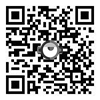how do youths throughout history use technology to change the world?
You must be the change you with to see in the world by Mahatma Gandhi
Overview
Students take a literary journey through history to learn about social injustices and how youths use technology to change the world. We begin in WWII Germany, learning about resistance fighters who weakened Hitler’s evil regime. Then, we travel to the United States during the Civil Rights Movement to explore how youths used technology to secretly share information and protest social injustices. We conclude the unit by taking a trip to 21st Century Pakistan to explore how a young girl leads a crusade against the Taliban to fight for women’s right to an education in Pakistan.
Objective
- Explore the types of technology and media that is used today to share information.
- Watch “Bill Gates on Egypt’s Internet Shutdown,” an interview with Katie Couric (CBSNews, January 2011), to discuss how young Egyptians used the Internet and technology to bring down a government.
- Read “The boys Who Fought the Nazis” (Scholastic Scope, April 2013) and explore how media and information play a role in fighting for human rights.
- Watch the documentary Mighty Times, The Children’s March (Teaching Tolerance) to discuss how radio and music played a role in organizing and protesting during the Civil Rights movement.
- Read “Teen Freedom Fights” play (Scholastic Scope, 2012) to explore how the young people in Selma, Alabama fought for the black American’s rights to vote.
- Read “Malala the Powerful” (Scholastic Scope, September 2013) to explore how modern technology assisted in the fight for women’s rights to an education in Pakistan.
- Explain how youths throughout history used technology to change the world.
Focus Skills
Inference, text details, descriptive language, mood, text structure
Activities
- Explore the traits of people who change the world.
- Use graphic organizer to take notes while reading.
- Explore how the author’s description of the perilous setting in WWII Germany establishes a mood.
- Explain why the author shifts the structure of the texts from narrative nonfiction to informational.
- Discuss the impact these youths have on our society today. Write an essay explaining how youths throughout history used technology to raise their voices and overcome social injustices.
- Prepare for the debate with “Do you think young people have the power to change the world?” on PF format.
Thematically Paired Texts

“The Boys Who Fought the Nazis” by Kristin Lewis; Click to download The PDF
(Scholastic Scope® Magazine September 2013 • Narrative Nonfiction)
Essential question •What role does information and technology play in fighting Hitler’s evil regime?

“Teen Freedom Fighters” ; Click to download The PDF
(Scholastic Scope® Magazine 2012 • Drama)
Essential question •How does technology and music play a role in Black-Americans gaining the right to vote?
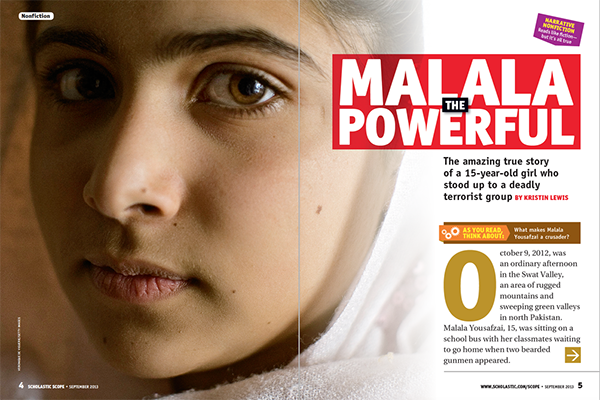
“Malala the Powerful” by Kristin Lewis; Click to download The PDF
(Scholastic Scope® Magazine September 2013 • Narrative Nonfiction)
Essential question •How does having technology help Malala fight the oppressive forces of the Taliban? •How can education empower youth to become tomorrow’s leaders?
Resources
Vocabulary
Additional Resources
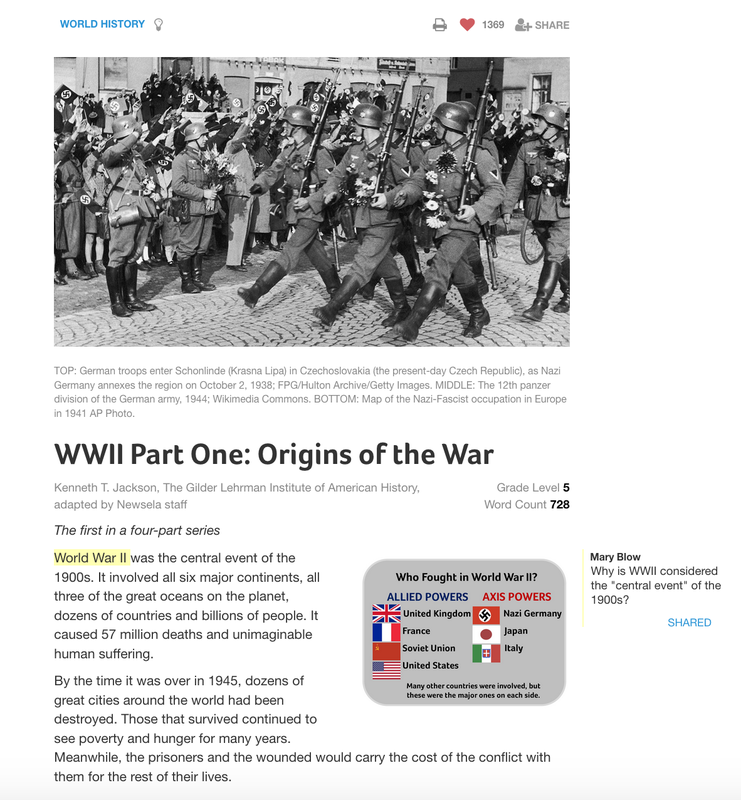
“WWII Part One: Origins of the War” by Kenneth T. Jackson; Click to download The PDF
(Newsela • Information)
Essential question •What were the causes and effects of World War II?
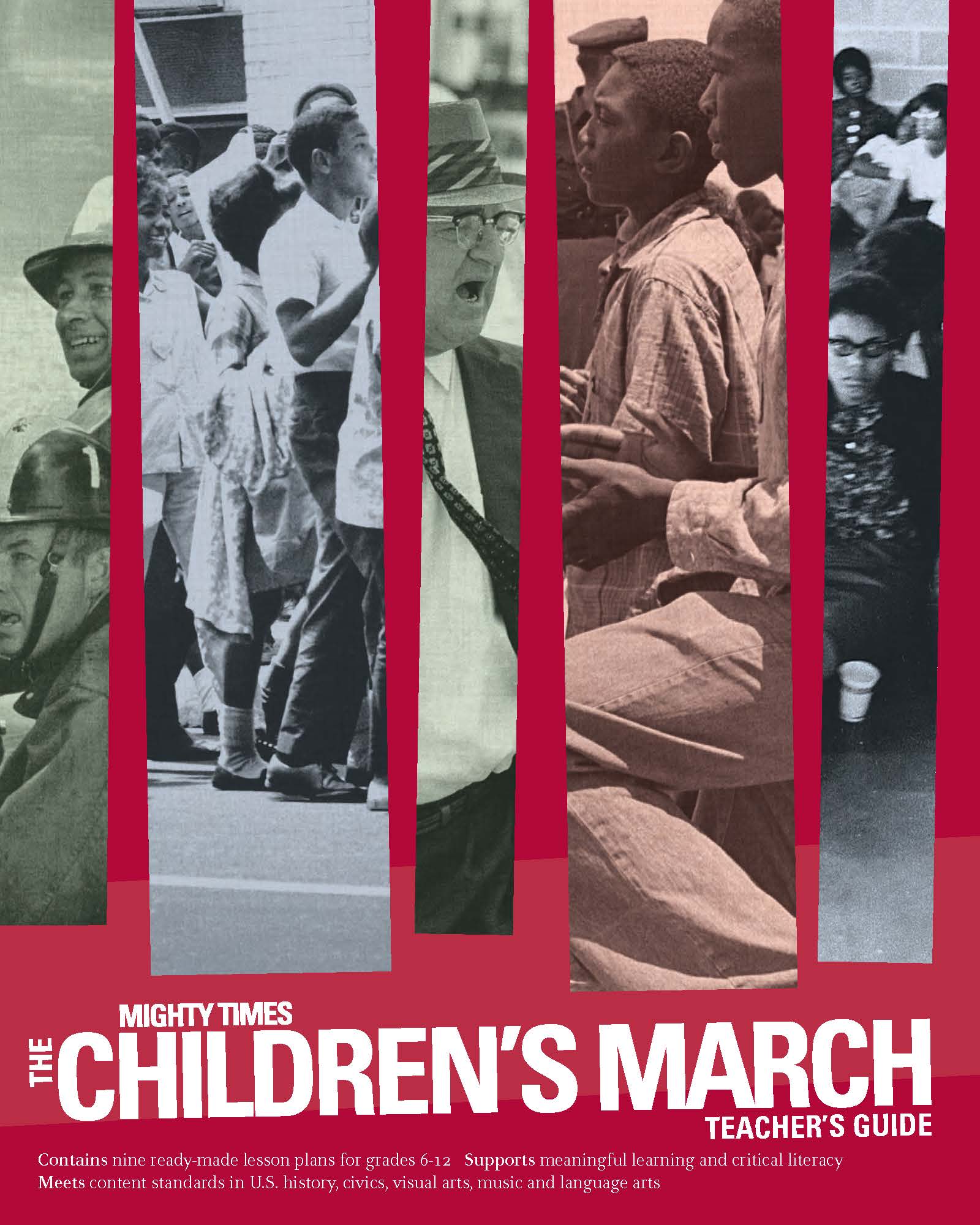
“Mighty Times: The Children’s March” by Teaching Tolerance; Click to download The PDF
(Documentary)
Essential question •Why do the children, and not the adults, participate in the protests?
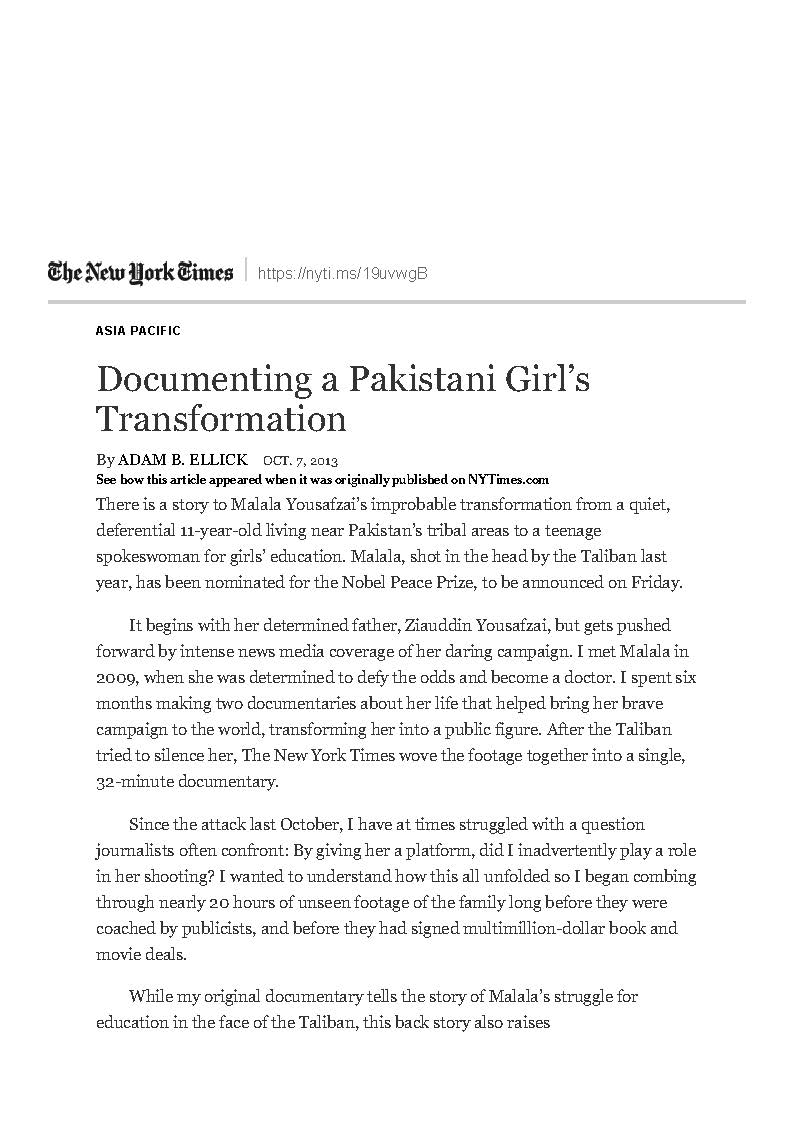
“Class Dismissed: Malala’s Story” by Adam B. Ellick and Irfan Ashraf; New York Times Documentaries
(Documentary)
Essential question •Why is it difficult for Malala to follow her dreams?
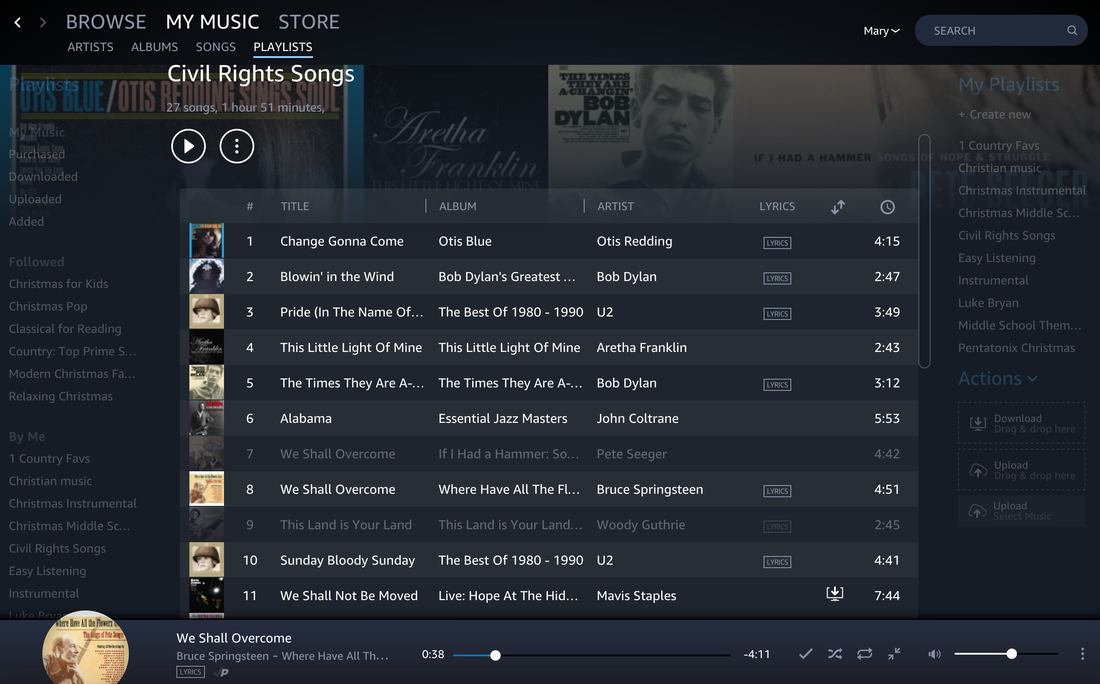
A playlist of Civil Rights Songs to demonstrate the power of communication through music:
- 1. Change Gonna Come by Otis Reading
- 2. Blowin’ in the Wind by Bob Dylan
- 3. Pride (In The Name Of Love) by U2
- 4. This Little Light of Mine by Aretha Franklin
- 5. The Times They Are A-Changin by Bob Dylan
- 6. Alabama by John Coltrane
- 7. We Shall Overcome by Bruce Springsteen
- 8. This Shall Land is Your Land by Woody Guthrie
- 9. Sunday Bloody Sunday by U2
- 10. We Shall Not Be Moved by Mavis Staples
Before Reading Activity
During Reading Activity
After Reading Activity
More Information
 SAT PREP CENTER
SAT PREP CENTER






